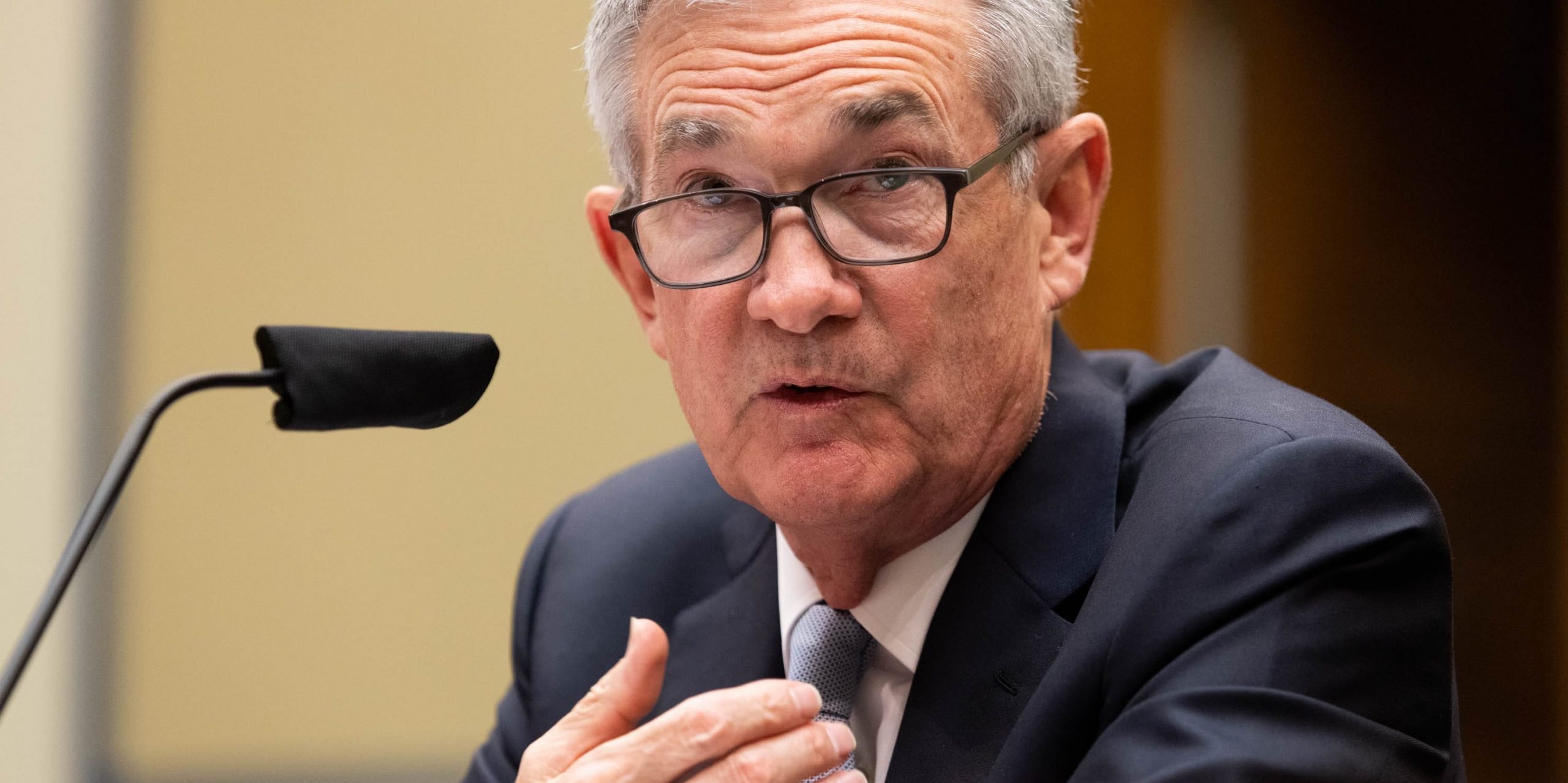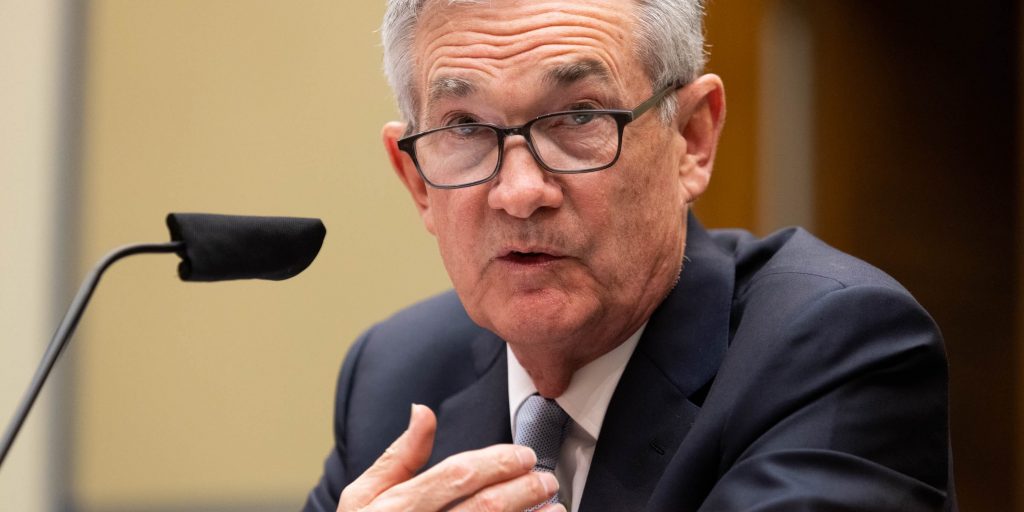
Pool/ Getty Images
- Fed Chair Jerome Powell said he wasn't aware of "specifics" behind stock trades made by two top policymakers while in office.
- He avoided saying he has confidence in Dallas and Boston Fed presidents Robert Kaplan and Eric Rosengren in a press conference Wednesday.
- Powell pledged to review the rules for Fed officials, saying: "We need to make changes, and we're going to do that as a consequence of this."
- Sign up here for our daily newsletter, 10 Things Before the Opening Bell.
Federal Reserve boss Jerome Powell has said he wasn't aware of the specific trading activity carried out by two regional Fed presidents, and brushed off the chance to back the top policymakers facing questions about apparent conflicts of interest.
Powell was asked Wednesday whether he still has confidence in Dallas Fed President Eric Rosengren and Boston Fed President Robert Kaplan being able to do their jobs.
"In terms of having confidence and that sort of thing, I think, no one is happy. No one on the (Federal Open Market Committee) is happy to have these questions raised," he responded in a post-Fed meeting press conference.
Financial disclosures first reported by The Wall Street Journal showed Kaplan and Rosengren made multimillion-dollar trades, some in popular stocks such as Apple and Tesla. These came as the Fed significantly expanded its asset purchases to provide unprecendented support for the pandemic-hit US economy.
Both have expressed regret for their investment decisions and have pledged to divest their money by the end of this month to avoid any possible conflict of interest. Some advocacy groups have called for the Fed presidents to resign from their positions, arguing that their actions could make Americans lose trust in the central bank.
Powell said that before media reports of their stock trades, he hadn't known of the policymakers' actions.
"I was not aware of the specifics of what they were doing," he said.
Pointing to three existing restrictions, Powell noted Fed officials are already subject to certain rules around securities. First, ownership of certain assets, such as bank securities, is not allowed. Second, there are specific times - such as around FOMC meetings - when officials are not allowed to trade at all or to buy or sell financial assets. Third, officials must make annual financial disclosures.
"This has been our framework for a long time, and I guess you'd say it's served us well," Powell said. "The other thing you would say: that it is now clearly seen as not adequate to the task of really sustaining the public's trust in us."
"We need to make changes and we're going to do that as a consequence of this," he added.
The Fed will carry out a thoroughgoing and comprehensive review and consider ways to further tighten rules and standards, Powell promised. However, he would not be drawn on a timeline or to suggest what changes could be made.
When it came to talking about his own holdings, Powell said he has owned municipal securities - which the Fed bought last year for the first time - for many years.
But Powell said the holdings were a "coincidence," because he hadn't expected the Fed to buy munis to prevent a collapse in the market. He isn't an active trader, he added, saying he had cleared any conflicts of interests with ethics officials.
"Munis were always thought to be a pretty safe place for a Fed person to invest because the law was that the Fed would never buy municipal securities," he said.
